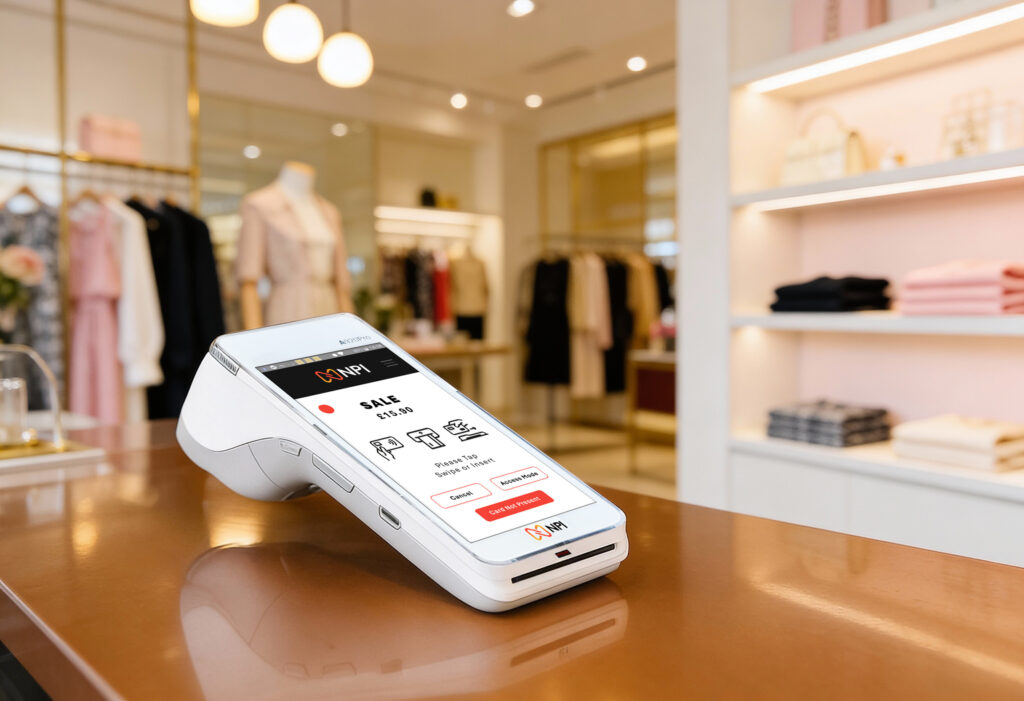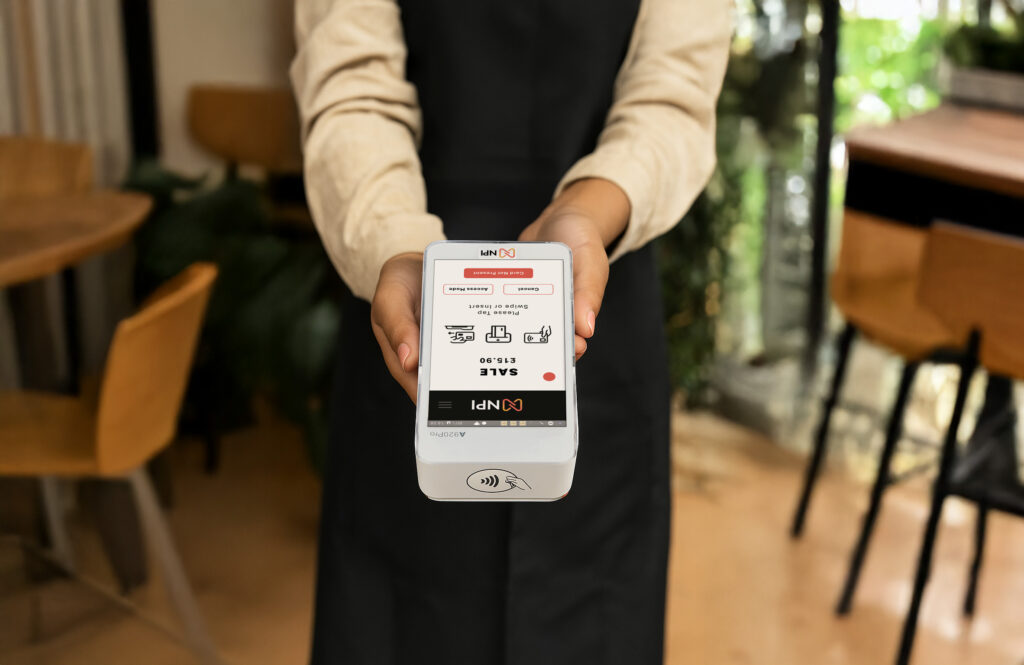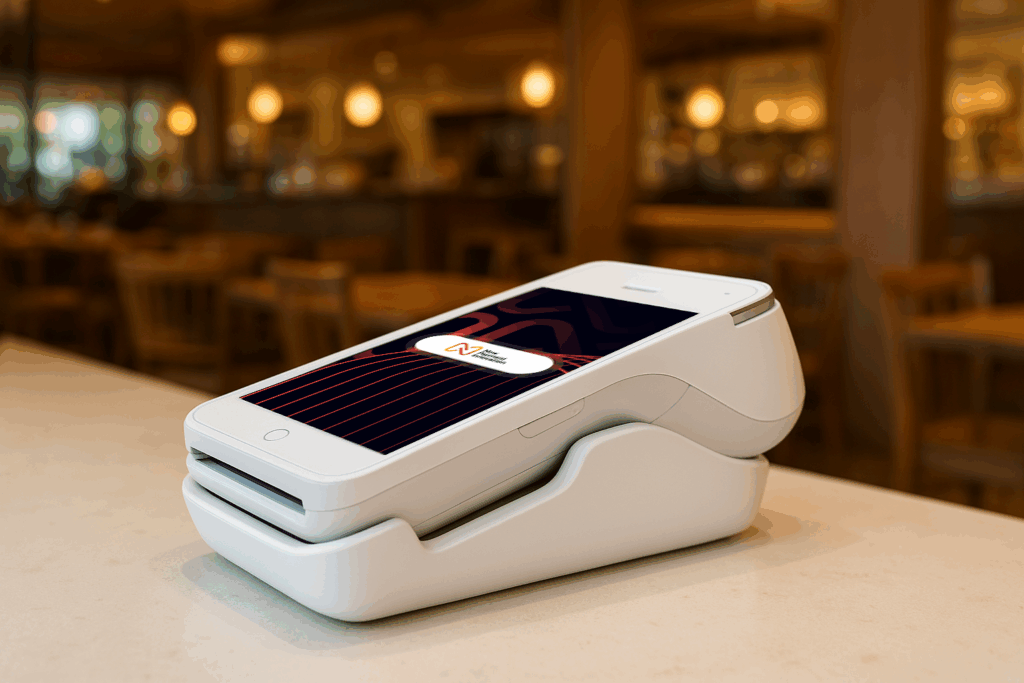The journey from cash-only operations to becoming a cashless business UK represents one of the most significant transformations facing modern retailers. Across Britain, independent shops, market traders, and established retailers are discovering that embracing advanced retail payment systems UK isn’t just about keeping up with technology—it’s about survival and growth in an increasingly digital marketplace.
This transformation story resonates with thousands of UK retailers who’ve successfully navigated the transition from traditional cash registers to sophisticated payment ecosystems. The shift to cashless business UK operations has proven to increase average transaction values, improve operational efficiency, and attract younger demographics who rarely carry physical money. Understanding this journey helps retailers make informed decisions about their own payment evolution.
The State of Retail Payment Systems UK: Moving Beyond Cash
Declining Cash Usage Statistics
UK payment trends show a dramatic shift away from physical currency. According to recent data from UK Finance, cash transactions now represent less than 15% of all retail payments, down from over 60% just a decade ago. This cashless business UK trend accelerated significantly during recent years, with many consumers permanently adopting contactless and digital payment methods.
Consumer behaviour research reveals that younger customers actively avoid businesses that don’t accept card payments, whilst older demographics are increasingly comfortable with contactless transactions. Retail payment systems UK that offer multiple payment options capture a broader customer base and higher transaction volumes.
Why Retailers Resist Modern Retail Payment Systems UK
Many traditional retailers hesitate to implement modern retail payment systems UK due to perceived complexity and costs. Common concerns include transaction fees, equipment expenses, and staff training requirements. However, these upfront investments typically generate positive returns within months through increased sales and operational efficiencies.
Cash handling costs often exceed card processing fees when you factor in banking charges, staff time for counting and depositing money, insurance requirements, and security risks. Cashless business UK operations eliminate these hidden expenses whilst providing valuable transaction data for business optimisation.
Planning Your Retail Payment Systems UK Transformation
Assessing Current Operations and Customer Base
Customer analysis forms the foundation of successful payment transformation. Study your customer demographics, typical transaction values, and peak shopping periods to determine which retail payment systems UK features will deliver the greatest impact. Mystery shopping your own business from a customer perspective often reveals payment pain points you hadn’t considered.
Transaction pattern analysis helps identify opportunities for improvement. Perhaps customers frequently purchase items totalling just over £10, suggesting contactless payment limits create friction. Maybe weekend shoppers spend more than weekday customers, indicating different payment preferences between casual browsers and regular customers.
Setting Realistic Timeline Expectations
Successful transformations typically unfold over 3-6 months, allowing time for equipment installation, staff training, and customer adaptation. Rushing implementation often creates operational disruptions that frustrate both staff and customers, potentially damaging your business reputation during the critical transition period.
Phased rollouts work particularly well for multi-location retailers. Start with your busiest or most tech-savvy location to iron out operational issues before expanding cashless business UK systems across all sites. This approach builds internal expertise whilst minimising risk.
Budgeting for the Complete Transformation
Total cost of ownership includes more than just payment terminals. Consider point-of-sale software, staff training, customer communication materials, and potential shop fitting modifications. Retail payment systems UK providers should offer transparent pricing that covers installation, training, and ongoing support.
Return on investment calculations should factor in increased transaction values, reduced cash handling costs, improved operational efficiency, and potential insurance savings. Many retailers find their cashless business UK transformation pays for itself within 6-12 months.
Customer Adaptation Strategies That Actually Work
Communicating Changes to Your Customer Base
Advance notice prevents customer frustration and demonstrates your commitment to improved service. Clear signageexplaining new payment options, highlighting contactless limits, and showcasing accepted payment methods helps customers prepare for their shopping experience.
Staff training on explaining benefits to hesitant customers proves crucial. Employees should confidently explain how retail payment systems UK improvements reduce queuing times, provide receipt options, and offer enhanced security compared to cash transactions.
Supporting Reluctant Customers Through the Transition
Educational approaches work better than forcing change. Demonstration sessions during quiet periods help nervous customers become comfortable with contactless payments. Patient staff who offer step-by-step guidance create positive experiences that encourage repeat visits.
Gradual implementation allows customers to adapt naturally. Many cashless business UK retailers continue accepting cash initially whilst encouraging card payments through incentives or convenience messaging.
Creating Incentives for Digital Payment Adoption
Loyalty programmes linked to card payments encourage adoption whilst providing valuable customer data. Contactless-only promotions or faster service lanes for card users demonstrate tangible benefits without alienating cash customers.
Special offers for customers using mobile payment apps or contactless cards can accelerate adoption. However, ensure incentives comply with payment card industry guidelines and don’t discriminate against customers with limited digital access.
Technical Implementation of Advanced Retail Payment Systems UK
Choosing the Right Retail Payment Systems UK Equipment
Terminal selection depends on your specific retail environment. Countertop terminals suit traditional retail counters, whilst portable devices work better for market stalls, pop-up shops, or customer service areas. Integrated solutions that combine payment processing with inventory management offer the greatest operational benefits.
Connectivity requirements vary by location and business model. WiFi-dependent systems work well for permanent locations with reliable internet, whilst 4G-enabled terminals provide flexibility for mobile retail or areas with poor connectivity.
Integration with Existing Business Systems
Inventory management integration automatically updates stock levels as sales occur, reducing manual administration and preventing overselling popular items. Accounting software connectivity streamlines financial reporting and VAT calculations, essential features for efficient cashless business UK operations.
Customer relationship management systems can capture transaction data to personalise marketing communications and track customer preferences. This integration transforms payment processing from a simple transaction tool into a comprehensive business intelligence platform.
Staff Training and Operational Procedures
Comprehensive training programmes should cover daily operations, troubleshooting common issues, and customer service scenarios. Role-playing exercises help staff become confident handling various payment methods and explaining features to customers.
Standard operating procedures for opening, closing, and reconciling retail payment systems UK ensure consistency across all staff members. Regular refresher training maintains service standards as staff turnover occurs.
For expert guidance on implementing retail payment systems UK that transform your business operations, contact New Payment Innovation at +44 23 8001 9998. Our specialists provide comprehensive support throughout your cashless business UK transformation journey.
Measuring Business Impact of Retail Payment Systems UK Implementation
Transaction Value and Volume Analysis
Average transaction values typically increase by 15-25% after implementing comprehensive retail payment systems UK solutions. Contactless payment psychology encourages customers to spend more freely compared to physically counting cash. Impulse purchases become more common when payment friction disappears.
Customer throughput improvements during peak periods often surprise retailers. Faster payment processing reduces queue times, enabling higher sales volumes during busy periods. Staff efficiency increases as employees spend less time handling cash and more time serving customers.
Customer Satisfaction and Retention Improvements
Customer feedback consistently shows improved satisfaction with cashless business UK operations. Convenience factors like faster checkout, receipt options, and payment security rank highly in customer surveys. Younger demographics specifically appreciate businesses that embrace modern payment technology.
Repeat visit frequency often increases after payment system upgrades, suggesting that convenient payment experiences encourage customer loyalty. Word-of-mouth recommendations improve as customers share positive experiences with friends and family.
Operational Efficiency Gains
Administrative time savings from reduced cash handling often exceed initial expectations. Daily reconciliationbecomes faster and more accurate, whilst banking visits become less frequent or unnecessary entirely. Security concernsdecrease significantly with reduced cash on premises.
Staff productivity improvements allow better customer service and potentially reduced labour costs. Inventory management becomes more accurate with integrated retail payment systems UK that automatically track sales data.
Common Challenges with Retail Payment Systems UK Transitions
Managing the Transition Period
Dual payment acceptance during transition periods requires careful staff training and clear procedures. Cash register reconciliation alongside card payment data can initially seem complex but becomes routine with proper systems and training.
Customer confusion about payment options diminishes quickly with clear signage and patient staff explanations. Technology hiccups during early implementation are normal and typically resolve within the first few weeks of operation.
Handling Retail Payment Systems UK Failures
Backup procedures ensure business continuity during technical issues. Mobile payment solutions can provide temporary alternatives whilst main systems undergo maintenance. Cash backup systems might be necessary initially but become less critical as cashless business UK operations mature.
Customer communication during technical difficulties should emphasise commitment to service quality and provide alternative solutions. Staff confidence in handling system issues improves with proper training and clear escalation procedures.
Addressing Security Concerns
PCI compliance requirements for retail payment systems UK ensure customer data protection whilst demonstrating professional business practices. Encryption technologies provide superior security compared to cash transactions, which offer no fraud protection.
Customer education about contactless payment security helps address lingering concerns about card skimming or data theft. Liability protections for card payments actually provide better security than cash transactions for both businesses and customers.
Industry-Specific Retail Payment Systems UK Considerations
Independent Retail Shops
Small business benefits from cashless business UK operations include improved cash flow, reduced insurance costs, and enhanced customer data collection. Competitive advantages against larger retailers emerge through personalised service enabled by customer transaction history.
Local community adaptation often happens faster than expected, particularly when neighbouring businesses also embrace modern payment systems. Customer education through community engagement helps accelerate adoption amongst traditional cash users.
Market Traders and Mobile Retailers
Portable payment solutions transform market trading by enabling higher-value transactions and attracting customers who don’t carry cash. Weather-resistant equipment ensures reliable operation in outdoor environments. Battery life considerations require planning but modern terminals easily handle full trading days.
Licensing compliance may require updating market trader permits to include card payment capabilities. Connectivity solutions through 4G networks enable retail payment systems UK functionality regardless of location.
Specialty Retailers and Boutiques
Higher transaction values in specialty retail make cashless business UK transformations particularly profitable. Customer demographics in boutique settings typically embrace payment innovation readily. Inventory integrationbecomes especially valuable for tracking slow-moving specialty items.
Personalised service opportunities expand when transaction history provides insights into customer preferences and purchasing patterns. Upselling opportunities increase with convenient payment processing that eliminates price-point resistance.
Legal and Regulatory Considerations for Retail Payment Systems UK
Understanding UK Retail Payment Systems Regulations
Consumer protection requirements ensure retail payment systems UK comply with Financial Conduct Authority guidelines. Accessibility obligations under the Equality Act may require accommodating customers who cannot use digital payment methods.
Data protection compliance under GDPR affects how customer transaction data is collected, stored, and used. Privacy policies should clearly explain payment data usage whilst reassuring customers about security measures.
VAT and Accounting Implications
Digital transaction records simplify VAT reporting whilst providing detailed audit trails for HMRC compliance. Automatic calculation features in modern retail payment systems UK reduce manual accounting errors and ensure accurate tax reporting.
Real-time reporting capabilities help maintain accurate financial records whilst providing insights for business decision-making. Integration with popular UK accounting software streamlines monthly and annual reporting requirements.
The British Retail Consortium provides additional guidance on retail industry best practices and regulatory compliance for businesses transitioning to cashless business UK operations.
Future-Proofing Your Payment Strategy
Emerging Payment Technologies
Mobile wallet adoption continues growing as Apple Pay, Google Pay, and Samsung Pay become standard customer expectations. QR code payments offer additional convenience whilst cryptocurrency acceptance may become relevant for certain customer demographics.
Voice-activated payments and biometric authentication represent next-generation payment technologies that forward-thinking retail payment systems UK providers are beginning to integrate.
Preparing for Continued Digital Evolution
System scalability ensures your cashless business UK infrastructure can accommodate growth and new payment methods without complete replacement. Regular software updates maintain security whilst adding new features and capabilities.
Customer expectation management requires staying informed about payment trends whilst maintaining focus on core business operations. Technology partnerships with experienced providers ensure access to emerging payment solutions without overwhelming complexity.
Success Stories from UK Retail Transformation
Case Study: Independent Bookshop Transformation
A traditional Cambridge bookshop increased average transaction values by 23% within six months of implementing comprehensive retail payment systems UK solutions. Customer feedback highlighted improved convenience, whilst operational efficiency allowed the owner to focus more time on customer service and book recommendations.
Inventory integration revealed surprising insights about customer preferences, enabling better stock selection and reducing unsold inventory. Loyalty programme data helped create personalised reading recommendations that increased customer engagement and repeat purchases.
Market Trader Success Story
A Birmingham market trader specialising in artisanal foods saw weekend sales increase by 40% after adopting portable cashless business UK solutions. Higher-value purchases became common as customers no longer limited spending to available cash. Customer acquisition improved as younger demographics previously avoided cash-only stalls.
Weather independence from reduced cash handling during outdoor trading provided unexpected operational benefits. End-of-day reconciliation became faster and more accurate, improving work-life balance for the trader.
Cost-Benefit Analysis for Retailers
Understanding Total Investment Requirements
Equipment costs for professional retail payment systems UK typically range from £200-800 per terminal depending on features and integration requirements. Monthly service fees vary by provider and transaction volume but average 1.5-2.5% of card transaction values.
Training investments in staff education pay dividends through improved customer service and operational efficiency. Marketing costs for customer communication about payment changes are often minimal with proper planning and signage.
Calculating Return on Investment
Increased transaction values alone often justify cashless business UK transformations within 6-12 months. Operational savings from reduced cash handling, banking fees, and insurance costs provide ongoing benefits. Customer acquisition through improved convenience and payment options drives long-term growth.
Competitive positioning advantages help maintain market share against retailers who embrace modern payment technology faster. Data insights from transaction analysis enable better business decisions that compound investment returns over time.
Getting Started with Your Payment Transformation
Initial Steps for Planning Your Journey
Business assessment should evaluate current payment volumes, customer demographics, and operational procedures. Competitor analysis reveals local market expectations and successful implementation strategies. Staff consultationensures buy-in from team members who will operate new systems daily.
Provider evaluation requires comparing not just costs but training quality, technical support, and long-term partnership potential. Reference checks with similar businesses provide realistic expectations about implementation challenges and benefits.
Timeline for Implementation
Preparation phase (4-6 weeks) includes equipment selection, staff scheduling for training, and customer communication planning. Installation period (1-2 weeks) covers equipment setup, software configuration, and initial staff training. Transition phase (2-4 weeks) allows gradual customer adaptation whilst monitoring system performance.
Optimisation period (ongoing) involves analysing transaction data, adjusting procedures based on experience, and exploring additional features that enhance business operations.
New Payment Innovation provides comprehensive support throughout your retail payment systems UK transformation. Our experienced team understands the unique challenges facing UK retailers and offers tailored solutions that ensure successful cashless business UK transitions.
For personalised consultation about transforming your retail business through modern payment technology, visit www.npi.uk or call +44 23 8001 9998 to speak with our retail payment specialists.
Conclusion: Embracing the Cashless Future
The transformation from cash-only operations to comprehensive cashless business UK systems represents more than a technological upgrade—it’s an investment in your business’s future competitiveness and growth potential. Retail payment systems UK that seemed like luxuries just years ago have become essential infrastructure for businesses serious about customer satisfaction and operational efficiency.
The retailers who thrive in tomorrow’s marketplace will be those who embrace payment innovation today, using technology not just to process transactions but to understand customers, optimise operations, and create experiences that build lasting loyalty. Your journey from cash-only to cashless isn’t just about accepting different payment methods—it’s about positioning your business for sustained success in the digital economy.
The transformation may seem daunting initially, but with proper planning, gradual implementation, and experienced partners, the journey becomes an exciting opportunity to revolutionise your retail operations whilst delighting customers with convenient, modern payment experiences.







